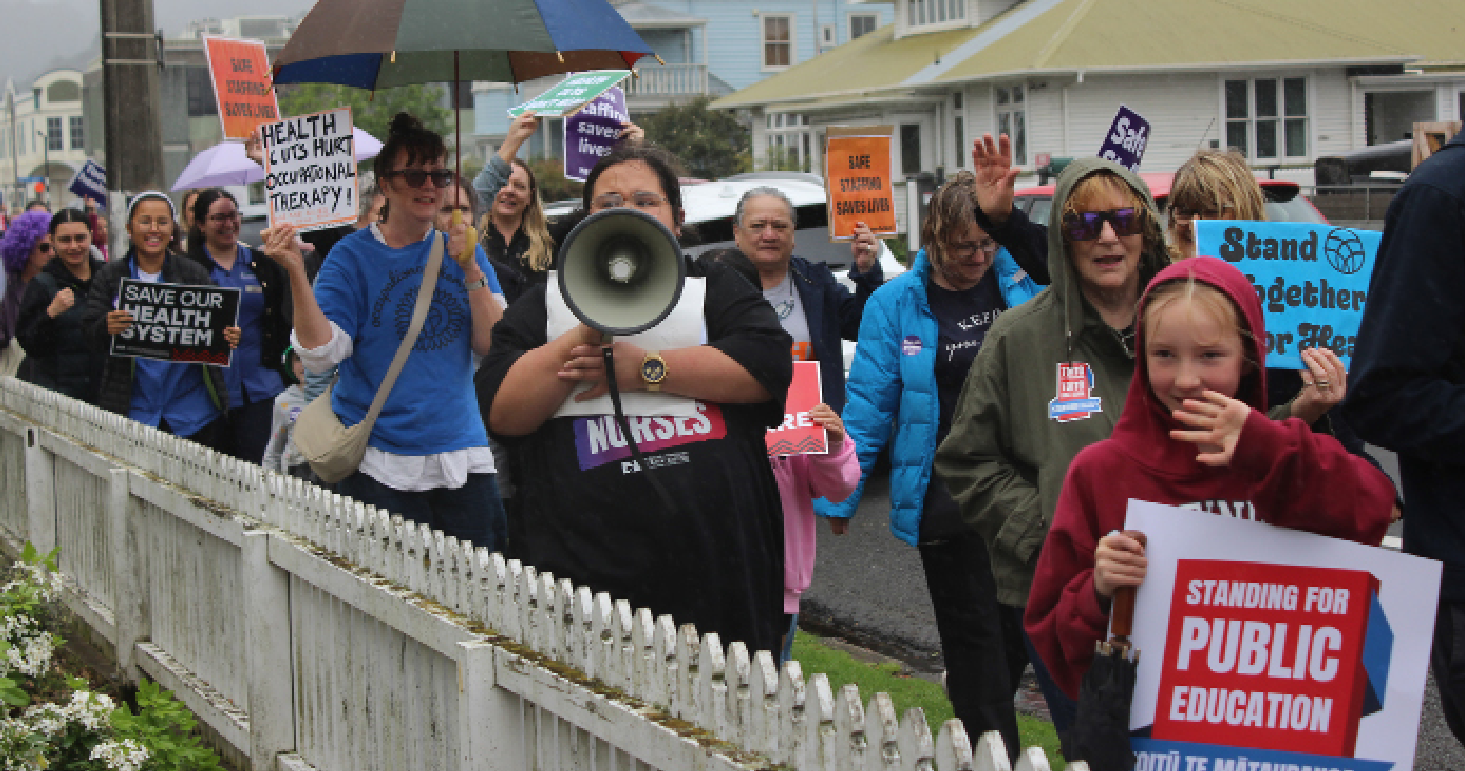Hundreds of health workers, teachers, and other public sector workers gathered in Porritt Park in droves on October 23 as part of a nation-wide “mega-strike”.
The Porritt Park rally, one of several around the country, began with a family-friendly gathering and speeches. Strikers then formed a “human wall” and marched to Coromandel MP Scott Simpson’s office on Pollen St.
The “Save our Services” strike action was a combined effort between multiple unions, which are currently involved in contract negotiations with the government. It involved an estimated 100,000 union members, in what was New Zealand’s biggest co-ordinated strike action in years.
Along with fair pay rates, the unions’ grievances are varied.
Nurses, senior doctors, and other health workers have raised concerns over staffing levels, recruitment delays, and unsafe working conditions.
Meanwhile, the education sector is calling for more specialist teachers and teacher aides, and for the government to uphold Te Tiriti o Waitangi in education.
New Zealand Council of Trade Unions president Richard Wagstaff said in a statement that union members expected a proper response to their negotiation claims.
“[Unions] are being confronted with a co-ordinated and deliberate bargaining strategy from the Public Service Commission and employers. That is to respond with long-term pay offers that are well under inflation,” he said.
“These disputes are about much more than pay rates. These workers have also raised numerous issues around the quality of service and care, especially around short-staffing and resources. This has largely fallen on deaf ears.”
Public Service commissioner Sir Brian Roche said the strike was “avoidable” and would result in significant disruption for patients, students and families.
“I regret that outcome for New Zealanders, especially as I thought progress could have been made on bargaining – disappointingly, the unions didn’t see it that way,” he said.
“We can only resolve these matters through constructive dialogue – not disruption… I urge the unions to come back to the table to negotiate a realistic and reasonable solution.”
Public Service Minister Judith Collins, meanwhile, penned an open letter calling the strike a “stunt” targeting the government.
“The strike appears to be politically motivated by the unions,” she said.
“The government has acted in good faith, and we have met unions’ demands for pay increases in line with inflation… The government also has a responsibility to manage the country’s finances carefully, especially when money is tight.”





